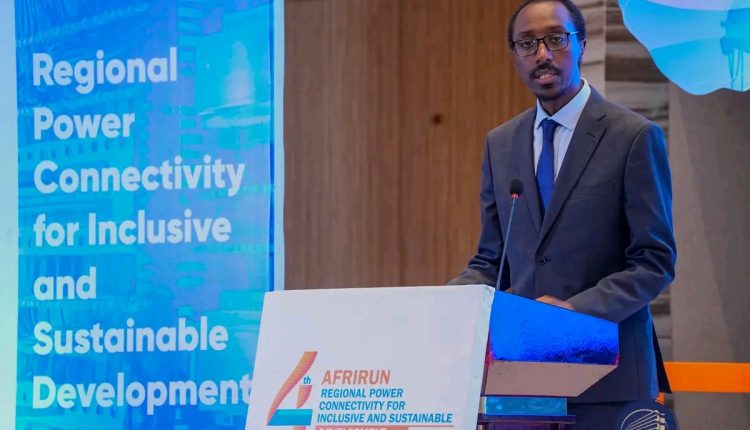Regional power connectivity key to inclusive and sustainable dev’t in Africa – FM Gedion
Addis Ababa, June 17, 2025 (FMC) – Foreign Minister Gedion Timothewos emphasized that regional power connectivity is essential for achieving inclusive and sustainable development across Africa, particularly in East Africa, where millions still lack access to electricity.
Speaking at the Fourth Annual Forum for Regional Integration and Reasonable Utilization of the Nile (AFRIRUN IV) today, the minister said the conference serves as a critical platform for strengthening cooperation, promoting equitable energy access, and unlocking the region’s full potential.
Highlighting the importance of clean and renewable power that reaches all communities, Gedion stressed that access to reliable and equitable energy should form the foundation for sustainable industrialization, job creation, and climate resilience.
This, he noted, can be achieved through shared infrastructure, harmonized policies, and cross-border energy trade to fulfill the aspirations of Africa’s shared development agenda.
“Ethiopia is committed to being a dependable source of clean energy,” Gedion stated, referencing ongoing electricity exports to Djibouti, Sudan, and Kenya, as well as plans to expand regional connections to Tanzania, Somalia, and South Sudan.
“Ethiopia is proud to contribute meaningfully to this shared vision. Our investment in renewable energy, particularly hydropower, has positioned us as an emerging energy hub,” he added.
He further noted that cross-border transmission lines under construction are more than just infrastructure—they are catalysts for deeper integration and tangible expressions of a shared destiny and collective prosperity.
Water and Energy Minister Habtamu Itefa also addressed the forum, recognizing Africa’s vast renewable energy resources while highlighting the stark reality of energy poverty in the region.
He underscored the urgency of enhanced collaboration to tackle power shortages in neighboring countries.
“Ethiopia has a power generation potential of 60 million megawatts. So far, we’ve developed nearly 10 percent of it. Meanwhile, our neighboring countries—Somalia, Kenya, Sudan, and most Nile Basin Initiative (NBI) members except Egypt—face significant energy deficits. We must work hand in hand to meet these demands,” he said.
Mickael Wizza, Advisor to the Nile Basin Initiative, emphasized that the region is endowed with abundant renewable resources that must be harnessed collectively.
He called for collaborative efforts to expand energy access to the millions still living without reliable power, thereby fostering economic growth, job creation, and improved living standards.
According to Wizza, regional cooperation can turn today’s challenges into opportunities, ensuring that energy systems are equitable, sustainable, and capable of supporting future generations.
He reaffirmed NBI’s commitment to supporting initiatives that promote regional integration.
Executive Director of the Institute of Foreign Affairs, Jafar Bedru, also noted that renewable infrastructure—such as large hydropower dams, geothermal plants, and solar farms—offers significant potential for shared prosperity and cooperation.
In this regard, he cited the Grand Ethiopian Renaissance Dam (GERD) as a transformative project that not only strengthens Ethiopia’s energy security but also lays the foundation for a cooperative regional power system.

